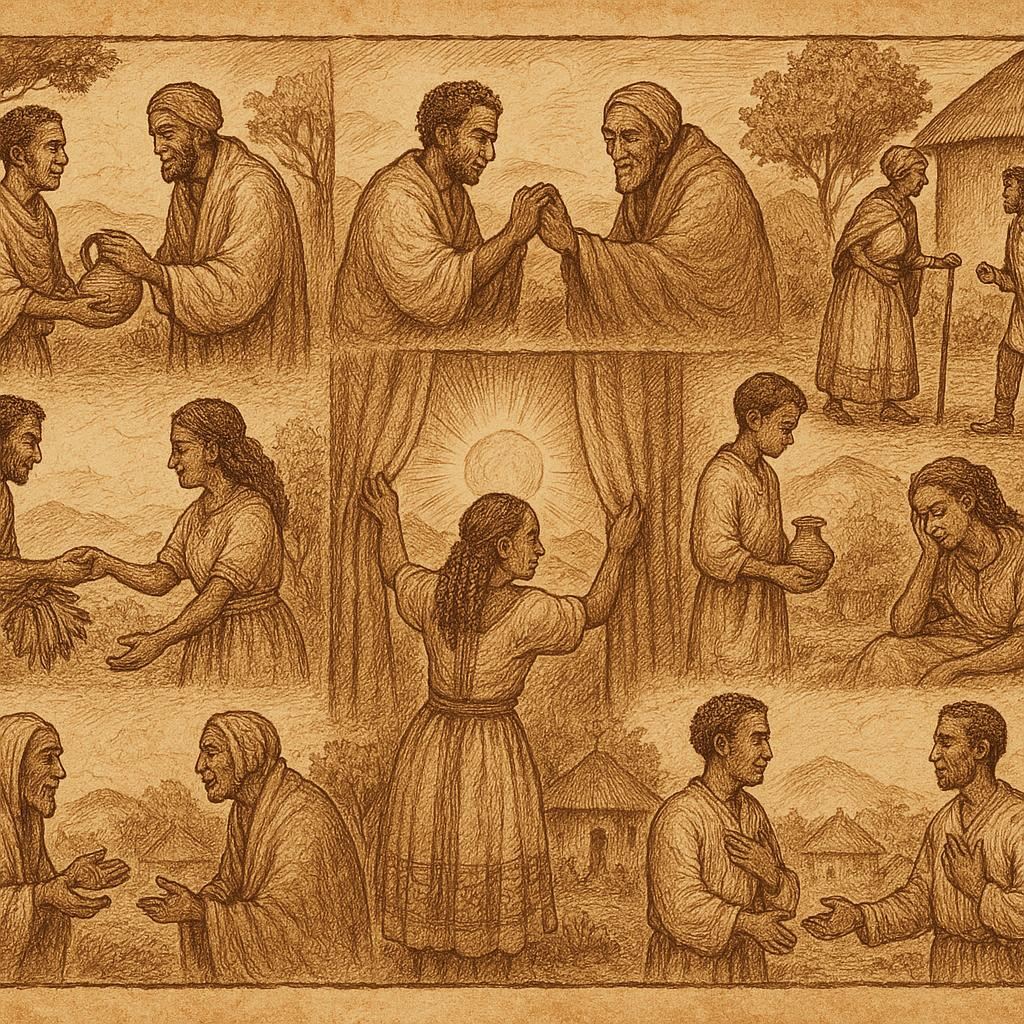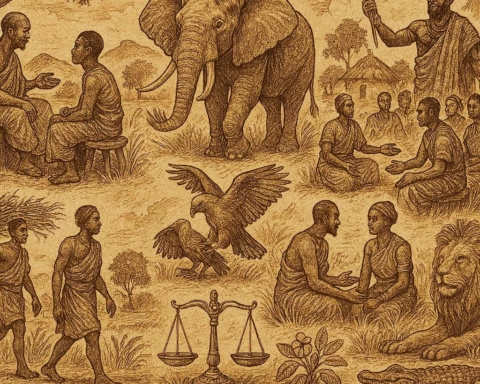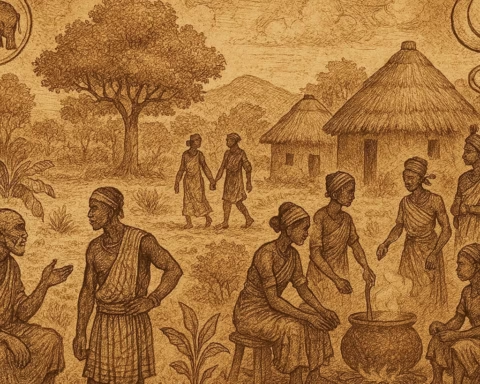In the cool highlands of Ethiopia, where coffee plants blossom under mountain mists and the air carries the scent of freshly baked injera, words have long been the currency of wisdom. The Amharic language, rich in imagery and history, holds countless proverbs (mesale) that speak to the soul. Among them, sayings about gratitude and generosity hold a special place.
In Ethiopian culture, generosity is not just a virtue, it’s a lifeline. Communities thrive on sharing, whether it’s the coffee ceremony that welcomes guests or the communal labor that brings in the harvest. Gratitude, in turn, cements relationships, ensures harmony, and honors those who give.
Here are eight Amharic proverbs that carry the essence of this deeply rooted cultural ethos.
“በልብ ያለው ይሰጣል።”
(What is in the heart will be given.)
Generosity is born from intention, not just abundance. This proverb reminds us that giving is a reflection of the heart’s sincerity. A small gift given with love is greater than riches offered without care.
“የበግ ቁርስ ለበግ ብቻ አይደለም።”
(A sheep’s breakfast is not for the sheep alone.)
This saying highlights the Ethiopian belief that blessings are meant to be shared. Just as food for one is often shared among many, resources are never truly personal, they are communal.
“እግዚአብሔር ለሰጠ ይጨምራል።”
(God adds to the one who gives.)
Rooted in spiritual faith, this proverb teaches that generosity invites abundance. In Ethiopian Orthodox Christian tradition, giving is seen as a divine cycle, what you give returns multiplied, often in ways beyond material wealth.
“ያልተጠገበ እንጀራ የተስፋ ነው።”
(The bread not yet eaten is a promise.)
Here, gratitude takes the form of anticipation. This proverb is a gentle reminder to appreciate not only what has been given but also what is promised, trusting the giver’s intention.
“ምንም እንኳን ሰጠ የሚሰጥ ይበልጣል።”
(Even if small, what is given is abundant.)
Ethiopians value the thought and act of giving over the size of the gift. This saying teaches that generosity is measured in spirit, not scale, and that even the smallest kindness can fill the heart.
“እጅ የሰጠች እግር ትወድቃለች።”
(The hand that gives will not stumble.)
This is both a moral and a blessing, those who give freely are protected in their path. In traditional belief, generosity creates goodwill that shields a person in times of trouble.
“የተቀበለ ይታወሳል።”
(What is received will be remembered.)
Gratitude is a form of honor. This proverb reflects the cultural expectation that one should remember and acknowledge kindness, no matter how much time has passed. Forgetting a gift is seen as a loss of integrity.
“የሰጠ አይጠፋም።”
(What is given is never lost.)
Whether it returns in friendship, divine favor, or reputation, generosity leaves a lasting mark. This proverb reassures the giver that kindness is an investment that cannot truly be wasted.
Cultural Origin
Amharic proverbs are an integral part of Ethiopia’s oral tradition, passed down through generations in homes, markets, coffee ceremonies, and community gatherings. They often reflect Ethiopia’s agricultural rhythms, religious beliefs, and communal way of life. Gratitude and generosity are especially emphasized in Amharic wisdom because they ensure survival and harmony in a country where hospitality is not just politeness but a sacred duty. From the highland villages of Gondar to the bustling streets of Addis Ababa, these sayings are invoked to guide daily interactions and preserve a culture where giving and thanking are inseparable acts of humanity.
Knowledge Check
1. What is the meaning of the Amharic proverb “በልብ ያለው ይሰጣል”?
It means that true generosity comes from the heart, not from wealth or obligation.
2. How does “የበግ ቁርስ ለበግ ብቻ አይደለም” reflect Ethiopian culture?
It shows the belief that resources and blessings should be shared communally, not kept only for oneself.
3. What lesson does “እግዚአብሔር ለሰጠ ይጨምራል” teach?
That giving generously invites more blessings, both material and spiritual.
4. Why is “የተቀበለ ይታወሳል” important in Ethiopian society?
Because it emphasizes remembering and honoring those who have shown kindness.
5. What is the moral of “የሰጠ አይጠፋም”?
That generosity is never wasted, it always brings value in some form.
6. What cultural tradition often involves sharing and gratitude in Ethiopia?
The Ethiopian coffee ceremony, which is a social and cultural practice centered on hospitality and thankfulness.














